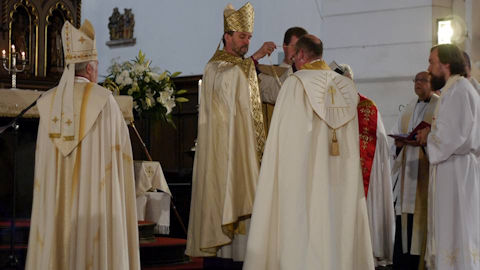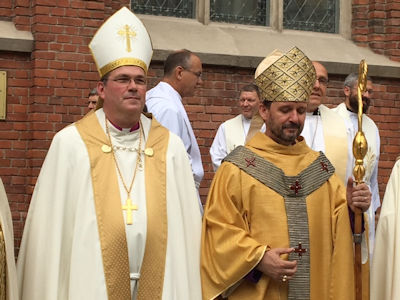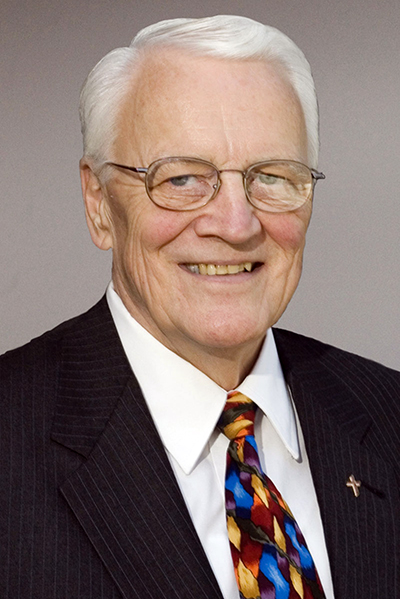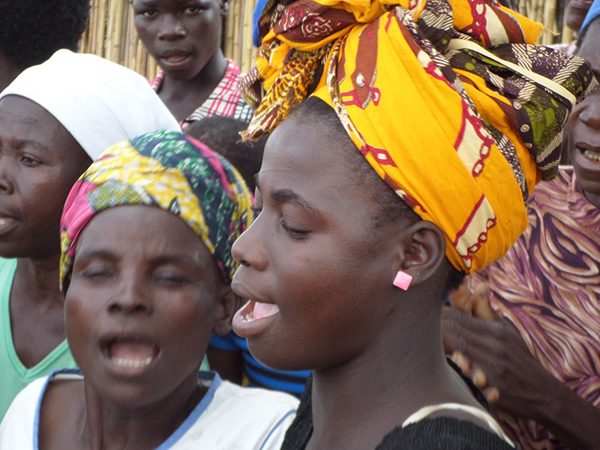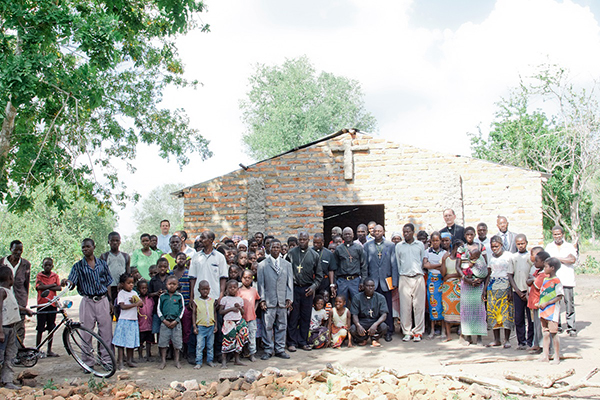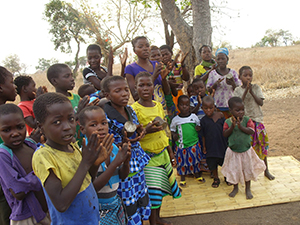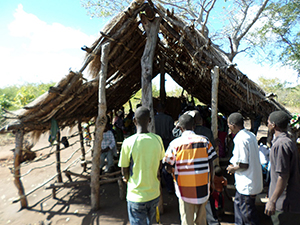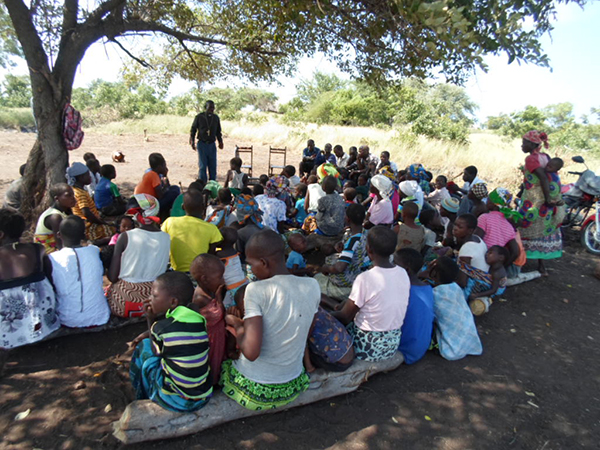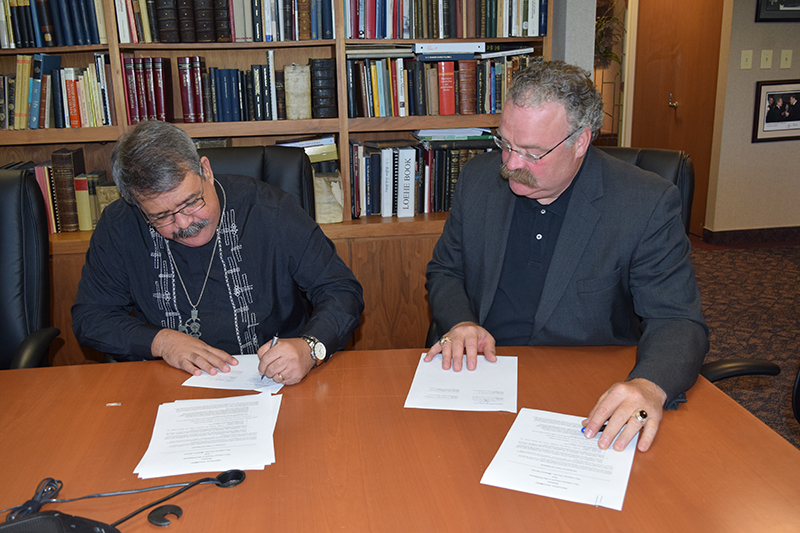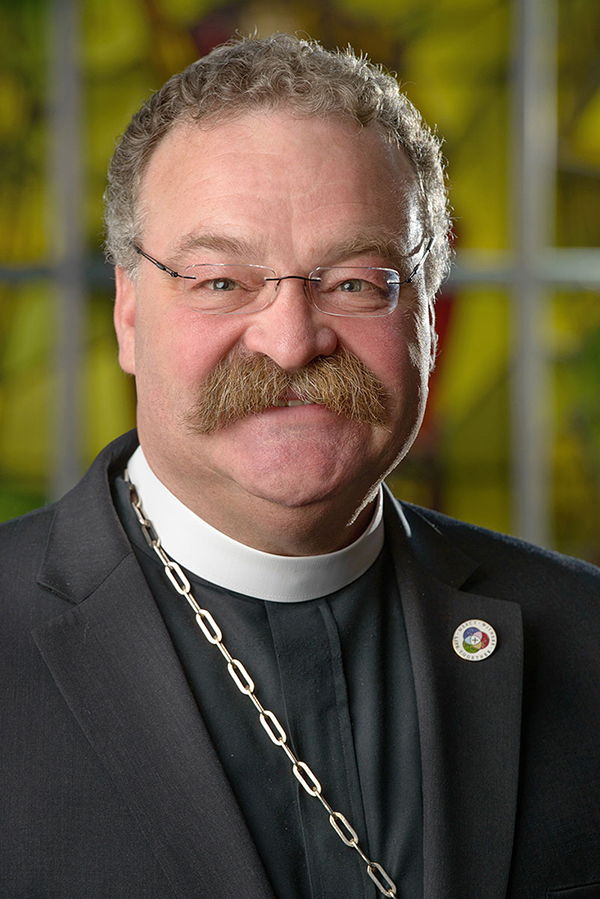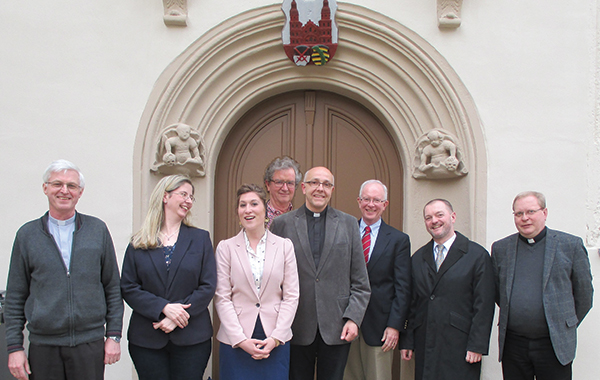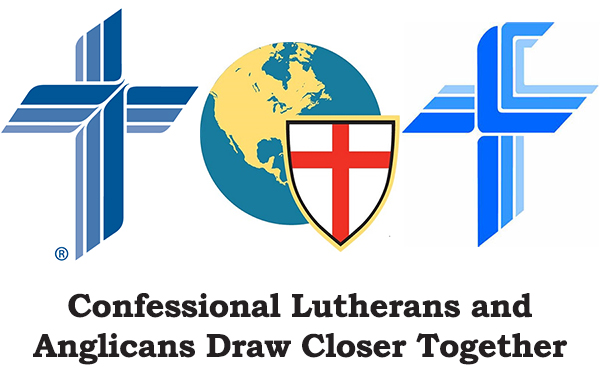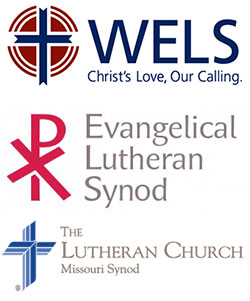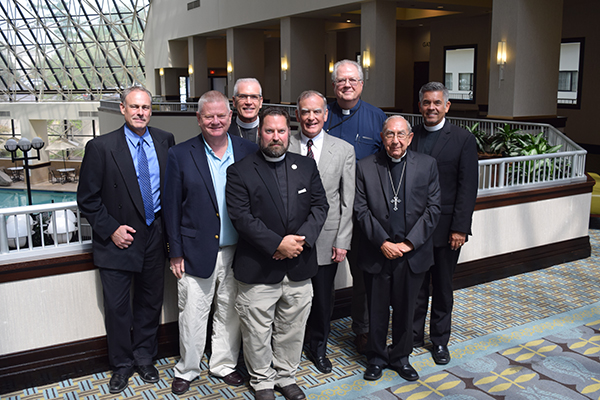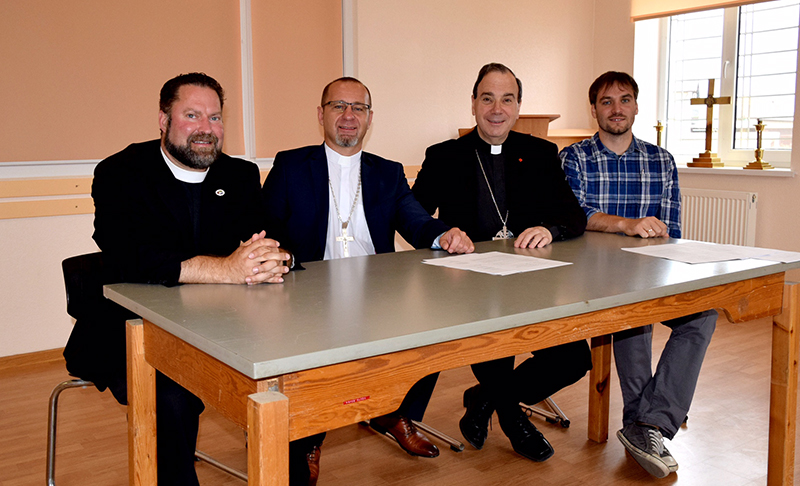
Signatories of the Ukraine agreement: Dr. Albert Collver (LCMS), Bishop Serge Maschewski (DELKU), President Robert Bugbee (LCC), Vice-President Oleg Schewtschenko (SELCU).
Ukraine – Representatives of four Lutheran church bodies signed an agreement in Odessa, Ukraine on August 12, pledging closer collaboration with one another and setting the stage for possible deeper cooperation in the future.
The German Evangelical Lutheran Church of Ukraine (DELKU) was represented by Bishop Serge Maschewski. Representing the Synod of Evangelical Lutheran Churches of Ukraine (SELCU) were Bishop Emeritus Viktor Graefenstein and Rev. Oleg Schewtschenko, SELCU Vice-President for Church Relations. Rev. Dr. Albert B. Collver represented The Lutheran Church-Missouri Synod (LCMS), while President Robert Bugbee attended on behalf of Lutheran Church-Canada (LCC). The protocol signing followed two days of meetings at SELCU’s Concordia Seminary in Usatovo, an Odessa suburb.
LCC has worked in Ukraine for more than 20 years, providing theological education for the SELCU since 1998. SELCU is a church body which began after a separation from the DELKU in the mid-1990s. Though the two Ukrainian churches have had occasional contacts since that time, the stage for stronger relations was set more recently when DELKU began expressing a desire to firm up its commitment to the Scriptures and the Lutheran confessions.
DELKU Bishop Maschewski had been an early student in the “Russian Project” of Concordia Theological Seminary at Fort Wayne, Indiana (CTSFW), as the LCMS began working with developing Lutheran churches after the breakup of the Soviet Union. “It is such a joy to see to see these long term relationships grow and blossom,” noted CTSFW President Lawrence Rast. “It shows us how the gospel is ‘in the whole world’ and ‘is bearing fruit and increasing’ (Colossians 1:6), just as the Scriptures promise.” The Fort Wayne Seminary provided several continuing education seminars for DELKU pastors in the past year.
Since LCMS and LCC have a long-standing practice of cooperation in world mission areas, the recent discussions sought to foster cooperation and avoid misunderstandings in Ukraine, which has historically been an LCC mission field. President Bugbee observed, “When these talks began, the participants did not expect that we would end up signing an agreement to keep each other thoroughly informed of the work we’re doing, and to consider stronger joint efforts in the future. The discussions were marked by a great brotherly spirit. I thank God for that!”
DELKU includes congregations with history reaching back to the Lutheran Church in the Russian empire, which was extensive and well developed until the communist revolution of 1917 ushered in decades of repression. After dissolution of the USSR and Ukrainian independence, DELKU worked extensively with the Lutheran (State) Church of Bavaria in Germany, but recently began cultivating ties with the LCMS and its partners, like LCC.
LCMS and LCC are both member churches of the International Lutheran Council, a global association of confessional Lutheran church bodies.
———————

